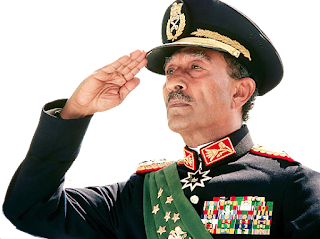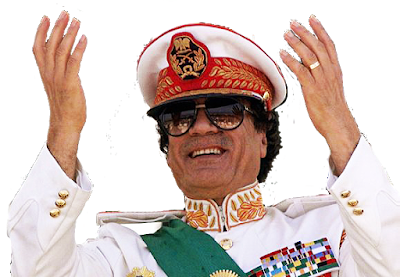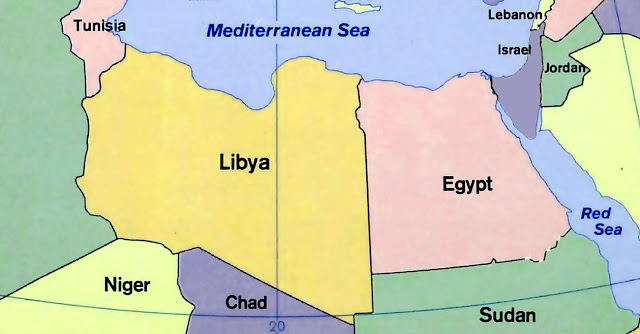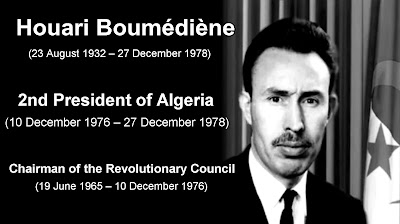Wednesday, April 5, 2023
The Libyan–Egyptian War in July 1977
The Libyan–Egyptian War was a short border war between Libya and Egypt in July 1977. Relations between the Libyan and the Egyptian government had been deteriorating ever since the end of Yom Kippur War from October 1973, due to Libyan opposition to President Anwar Sadat's peace policy as well as the breakdown of unification talks between the two governments.
In addition, the Egyptian government had broken its military ties with Moscow, while the Libyan government kept that cooperation going.
During 1976 relations were ebbing, as the Egyptian government claimed to have discovered a Libyan plot to overthrow the government in Cairo. On July 22, 1976, the Libyan government made a public threat to break diplomatic relations with Cairo if Egyptian subversive actions continued. On August 8, 1976, an explosion occurred in the bathroom of a government office in Tahrir Square in Cairo, injuring 14, and the Egyptian government and media claimed this was done by Libyan agents. The Egyptian government also claimed to have arrested two Egyptian citizens trained by Libyan intelligence to perform sabotage within Egypt. On August 23, an Egyptian passenger plane was hijacked by persons who reportedly worked with Libyan intelligence. They were captured by Egyptian authorities in an operation that ended without any casualties. In retaliation for accusations by the Egyptian government of Libyan complicity in the hijacking, the Libyan government ordered the closure of the Egyptian Consulate in Benghazi.
Throughout 1976 the Egyptian government was concentrating troops along the Libyan border. It enjoyed the support of the US government, who viewed Libya negatively, and was promised by Washington that no move in US-Libyan relations was to be made without consultation with Cairo.
Tensions between the two countries had increased during April and May 1977, as demonstrators attacked each other's embassies. In June 1977, Libyan leader Muammar Gaddafi ordered the 225,000 Egyptians working and living in Libya to leave the country by July 1 or face arrest.
In June 1977, thousands of Libyan protesters began a "March on Cairo" as they headed towards the Egyptian border. The Libyans wanted to demonstrate against the increasing likelihood that Egypt would enter into a peace treaty with Israel. On July 20, after the protest march was stopped by Egyptian border guards, Libyan artillery units fired at Egypt in Sallum.
On July 21, 1977 Libyan forces carried out a raid on Sallum. The raid was carried out by the 9th Tank Battalion and supported by a few Mirage 5 aircraft.
Anwar Sadat and his generals ordered 3 divisions to head to the Libyan border when news of the advancing Libyan tanks reached them. The three divisions quickly beat back the Libyan brigades,
destroying most of their equipment. The Egyptian Air Force and 3 divisions of the Egyptian Army stormed across the Libyan border and captured some key border towns. Libyan military bases in Al Adm (Gamal Abdul El Nasser Air Base), Kufra and Umm Alayan were bombed.
Other Arab states then asked Sadat not to launch a full-scale invasion of Libya (which Sadat and his generals allegedly planned on doing on 26 July). Sadat heeded their call and forced Libya into a ceasefire. The Egyptian Army then withdrew from occupied territory.
On July 24, the combatants agreed to a ceasefire under the mediation of the President of Algeria Houari Boumediène and the Palestine Liberation Organization leader Yasser Arafat.
In August 1977, an agreement to exchange prisoners of war led to a relaxation of tension between the two states. After four days of fighting, Libyan casualties were 400 dead or wounded, while Egyptian casualties were roughly 100 dead.
After the 1977 war, relations remain hostile for over a decade. As late as November 1988, Libya stated that it would not resume diplomatic relations with Egypt as long as Egypt had relations with Israel. However, in October 1989, Gaddafi visited Egypt for the first time in sixteen years. In March 1990, Hosni Mubarak and President Hafez al-Assad of Syria met with Muammar Gaddafi in Libya, and relations between the two countries returned to normal.









